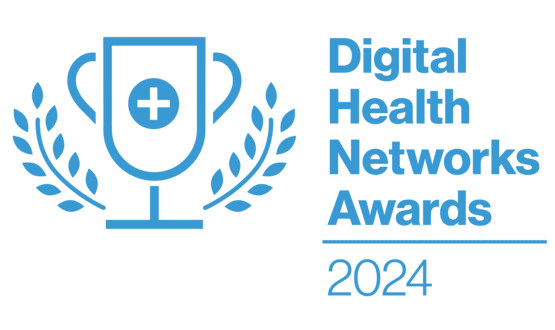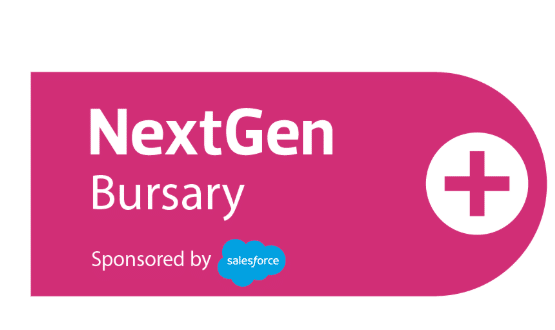Doing what it says on the tin
- 10 November 2014

You don't need to know what is in the technology “tin” be an effective commissioner, but you do need to understand what it can do and how to link the various “tins” together. That is the belief of chief clinical information officer for NHS Cumbria Clinical Commissioning Group, Dr William Lumb.
He told his audience at the Information for Commissioning conference at EHI Live 2014 that while individual organisations make IT decisions for their own reasons, his role is to look at the whole health economy and to make sure that providers can integrate on a level playing field.
“We need to know what we are doing; we need to have intelligence; commissioners need to commission: but at the moment a lot of what we are doing is counting beans,” he said.
Dr Lumb also stressed that “strategies really matter” and that clinical commissioning units need to develop their own IT and information strategies, so they can go out and find the support that they need.
“CCGs should have strategies and shouldn’t be beholden to commissioning support units. The [local] CSU will sell you what they already have,” he said. “I think CSUs should be much more vendor neutral; seeking out best of breed stuff rather than giving out stuff they already have.”
Putting data to practical use
CSUs were formed to provide CCGs with a range of back office services, including IT. They have had a troubled start, with NHS England predicting that as many as 30 could be formed, but just nine now remaining.
Those that are left, though, are keen to show that they are becoming far more focused on the needs of their commissioners.
Andrew Fenton, associate director for commissioning support at NHS Central Southern CSU, told the show that his CSU uses the Commissioning Intelligence Model to focus on what it is that a clinician or manager wants to answer; change or improve.
“This helps start to frame the design and to commission the analytical work that we need to do,” Fenton explained. “It’s a way of demystifying the work of intelligence and focusing on the goal.”
An initiative at NHS Windsor Ascot and Maidenhead CCG involved using an information dashboard to improve the management of residents in care homes. The aim was to reduce the number of short stay, non-elective admissions to hospital; and this has been achieved year on year since the implementation.
“[The dashboard] used real time patient information to help keep people in safe care within the home,” Fenton said. “Good quality intelligence and using the right technique and tool is more essential than ever in the current NHS environment."
Avoiding death by dashboard
Practical initiatives to identify ways of improving quality and efficiency are, indeed, essential; as think-tanks warn that the NHS is already in financial difficulty, and politicians ponder the implications of the ‘Five Year Forward View’ for bridging a gap between funding and demand that could reach £30 billion by 2020-21.
However, Christopher Green, divisional information lead urgent care and long-term condition at East Kent Hospitals University NHS Foundation Trust, warned the show about the dangers of "death by dashboard.”
He explained that while dashboards are helpful, clinicians that need to get answers are very busy people and often just want a “simple answer to a simple question” very quickly.
To address this, his trust has introduced search related analysis. This enables users to enter a search question in much the same way as they might ask a question using the Google search engine. The tool will bring up the relevant graph and statistics.
Green has seen a radical change in the information team during his time at the trust. Staff numbers have grown from six to 14 and it has gone from just doing things it “absolutely had to”, to developing an informatics strategy that gives a clear direction on what will be delivered and when.
As in any NHS trust, money talks. Green said his team really proved its worth when it reduced the number of ‘uncoded spells’ in hospital by 85%, thereby increasing the trust’s income.
Since then it has gone on to introduce live A&E reporting via a dashboard showing how each of the trust’s four emergency departments are performing and what might be impacting on that, such as number of attendances and acuity of patients.
It has also introduced a CCG level view of its inpatient dashboard, which allows GPs to see which of their patients are in hospital and when they are expected to be discharged.
“It’s very simplistic but it’s providing a real difference to our patients and hopefully is something that more CCGs will be engaged with,” Green said.
IG; still a huge headache
Both Fenton and Green are continuing to battle “massive information governance issues”, which they work through by engaging with all the various players in the healthcare economy.
Last year, the government confirmed the view of the second Caldicott review of information governance, that personal confidential data should only be used with implicit patient consent for direct patient care.
This left CCGs, which need patient data to do things such as risk stratification of their populations, in a difficult position.
NHS England and the Health and Social Care Information Centre are working on a long term solution to the issue, but Fenton said there are “still very big challenges around IG.”
“Overall, most people feel things have got somewhat harder in the last two to three years not easier. There’s recognition of that, but still some way between getting real clear guidance of information sharing in the current context," he added.
Fenton believes clinical leadership is essential and the role of chief clinical information officers is hugely important for giving confidence around information sharing.
Ask ‘why’?
Several CCIOs spoke at the Information for Commissioning conference, underlining their growing importance in this area.
The CCIO of the Hampshire Health Record, Dr Amir Mehrkar, is one of those clinicians who is passionate about the benefits of sharing information for patient care. He argued that CSUs have an essential role in helping to create partnerships between organisations, to share knowledge and to try and “distil a consensus”.
Meanwhile, he argued, the job of clinical leaders is to always focus on the “why?”; ensuring that everything is done for the benefit of patients.
Dr Lumb would concur. He argued that people like him need to help other clinicians understand that the “tin” is there to help them “to do health care well”.




